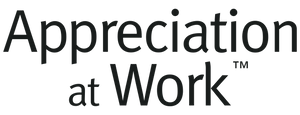Keynotes and Workshops from Dr. Paul White
Applying the 5 Languages of Appreciation to your Workplace
Unfortunately, many workplaces today are characterized primarily by complaining, sarcasm, and an overall negativity. This leads to poor morale and increased frustration among employees and managers – and results in higher staff turnover and numerous negative behaviors. Fortunately, there are practical steps that can be taken to create a more positive work environment. Learning how to communicate authentic appreciation to colleagues (rather than “go through the motions” employee recognition) can make a huge difference – as attested by our clients (Microsoft, Miller Coors, Million Dollar Round Table, numerous hospitals and over 250 colleges). This fast-paced, high-energy humorous presentation will encourage you and give you the tools and resources to make a difference in your workplace.
Improving Staff Morale with Authentic Appreciation
Funds continue to be tight in all sectors; as a result, the stress level in workplaces is still extremely high. In spite of the growing number of employee recognition programs, employees react negatively to “going through the motions” recognition. Supervisors are frustrated, not knowing what to do to support their staff. Learn the core conditions for individuals to truly feel appreciated, how to empower your staff by giving them thanks in the ways that are meaningful to each individual, and practical ways to overcome the common challenges encountered.
How Authentic Appreciation Reduces Resistance to Change
Change is part of our everyday lives, especially in the workplace. Updated rules and regulations , new technology, different processes and procedures, changes in organizational leadership — it seems never-ending. Implementing change across organizations is one of the biggest challenges leaders face today. Partly because “change” has a negative connotation for most employees — and they balk at it. Discover how to make change go more smoothly and with less resistance by helping employees feel truly valued and appreciated for what they do. When team members receive authentic appreciation from supervisors and colleagues, their level of trust increases, their anxiety surrounding the changes decreases, and they are more receptive to working with leaders to make the needed changes happen. Learn the process and resources that can help remove “change” from the dirty word list of your employees.
How to Avoid Becoming a Toxic Workplace
More and more is being discussed about the toxic workplace – and research has shown that millions of people report hating their jobs. Dr. White, in research for his new book, Rising Above a Toxic Workplace, has identified those characteristics that create negative workplace environments and the early warning signs employees should pay attention to. Additionally, he (along with co-authors, Dr. Gary Chapman and Harold Myra) has created a “survival kit” to help individuals cope with challenging situations and to be able to take care of themselves in an unhealthy environment. Be ready to wince with pain (to some of the stories), be encouraged (by the steps that can be taken), and laugh together as Dr. White addresses the realities of negative workplaces but gives instructions on how to avoid becoming one.
The Adventure of Change
Change” is a regular part of our everyday lives – both professionally and personally. In fact, the amount of change we experience often feels overwhelming. Having the tools to respond and adapt in healthy ways allows us to enjoy our lives more and experience more success in our daily life responsibilities. In this presentation, Dr. White will help participants: a) discover why people usually respond negatively to change; b) develop ways to react more positively to changes in their lives; c) learn and remember practical tools to successfully manage change; d) apply the concepts and resources back in their daily work settings, both immediately and in the coming months.
More info at www.appreciationatwork.com or contact tim@drpaulwhite.com


